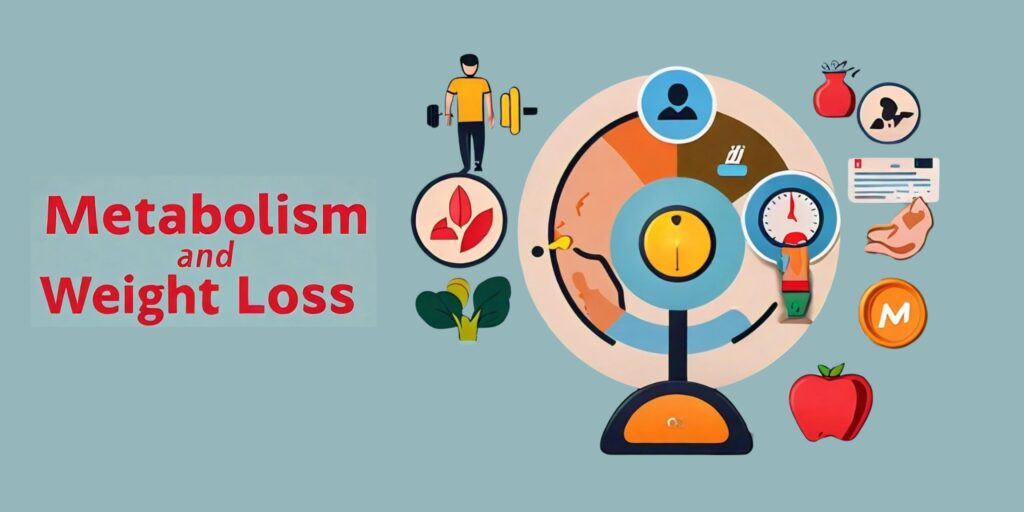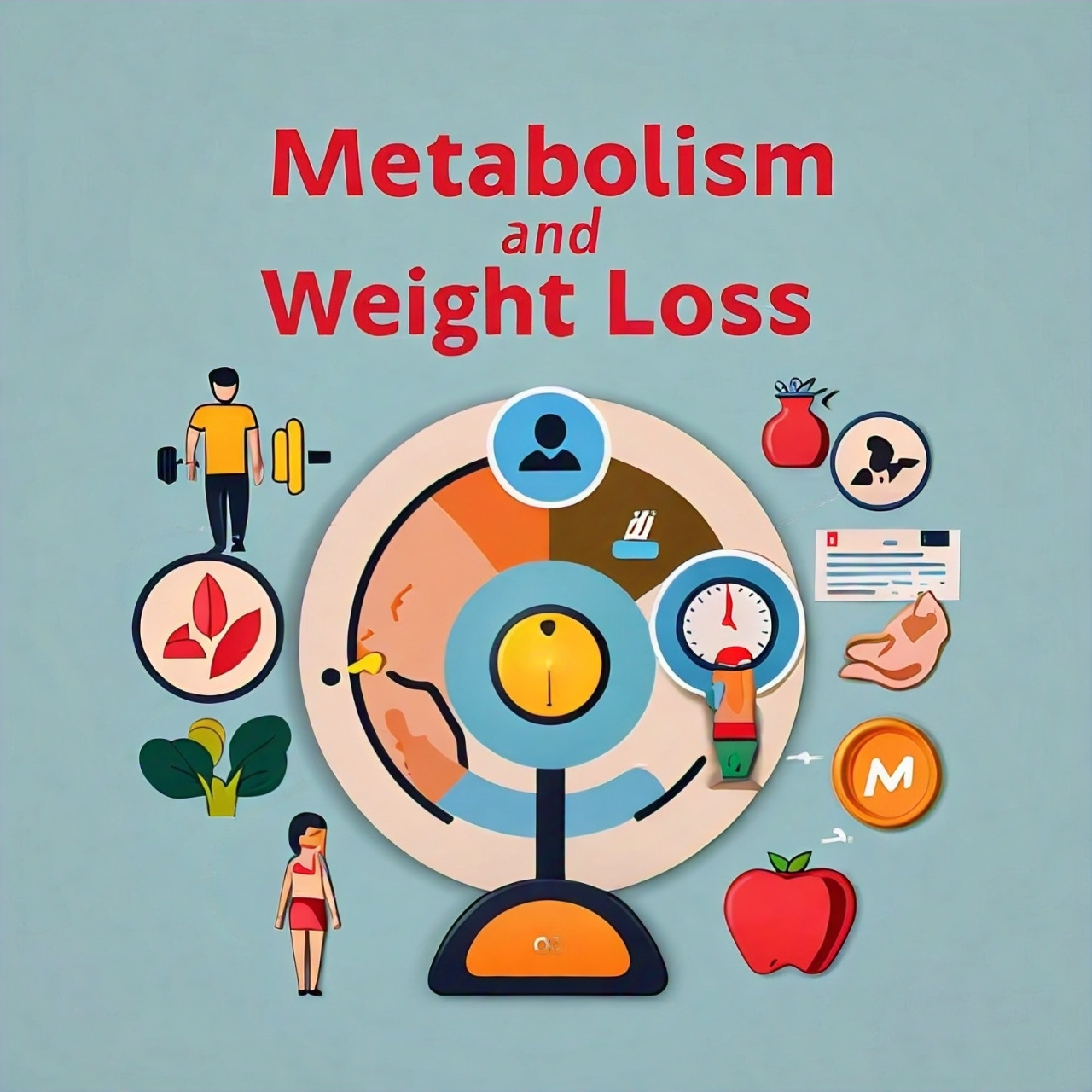

WHAT IS METABOLISM?
Metabolism refers to all chemical reactions in the body that convert food into energy, which is needed for daily tasks like breathing and moving. It includes two main components: Basal Metabolic Rate (BMR), the energy required for essential functions like regulating body temperature, and the Thermic Effect of Food (TEF), the energy used to digest and absorb nutrients
METABOLISM AND WEIGHTLOSS
Some people believe that their slow metabolism is the reason behind their weight. Is that, however, the true cause?
The body uses its metabolism to determine how much energy it needs. However, a person’s weight is determined by their combined intake of food and liquids and level of physical activity.
Muscle mass plays a major role in metabolism, but there are certain other factors which also influence metabolism.
1) Body composition and size-It also affects basal metabolic rate. Even when at rest, those with more muscle mass or size burn more calories.
2) Gender – Men have more muscle mass and less body fat. Consequently, men burn more calories. Women, as they are more fat than muscle mass, the body burns calories more slowly.
3) Age- People typically lose muscle as they age.
Besides these, physical activity also has a hand in metabolism and weight loss as it increases calorie expenditure and boosts metabolism, helping create a calorie deficit necessary for weight loss.
UNDERSTANDING WEIGHT CONTROL: A FUSION OF GENETIC AND ENVIRONMENTAL INFLUENCES-
The idea that metabolism is the key to weight is partly true and partially untrue. Genes take a long time to alter. An environmental factor is far more likely to be the cause, especially dietary modifications and a sedentary lifestyle.
Our bodies are made to retain extra energy in fat cells, regardless of how quickly or slowly you burn it off. If you eat more and move less, the body stores extra energy as fat and that is how you gain weight and vice versa.
There are numerous theories explaining why people eat over their fullness threshold, how much food they should consume, and when they should feel satisfied. One’s final weight is likewise influenced by these variables. According to one theory, every person has a set point, or a weight at which their bodies are “happy.” You will experience hunger pangs till you regain your set point weight, if you lose weight. That could also be the cause of why losing extra weight is so difficult.
CONCLUSION-
No matter how fast or slowly your metabolism uses the calories you eat, if you consume more than your body needs to function, the extra energy you keep will cause you to gain weight. Burning fat deposits is necessary for weight loss, so instead of starving yourself or skipping meals, give your body entire foods high in protein and fiber.
Some key behavioral changes such as mindful eating, being active throughout the day, healthy sleep routine and stress management benefits not only the metabolism and weightloss but the overall health and wellbeing.
About the author
About the author
Sharanya
Sharanya is a clinical dietitian with over 3 years of expertise in nutrition and weight management. She focuses on crafting personalized nutrition plans tailored to help individuals manage obesity and chronic health conditions, including diabetes
Sharanya
Sharanya is a clinical dietitian with over 3 years of expertise in nutrition and weight management. She focuses on crafting personalized nutrition plans tailored to help individuals manage obesity and chronic health conditions, including diabetes.


